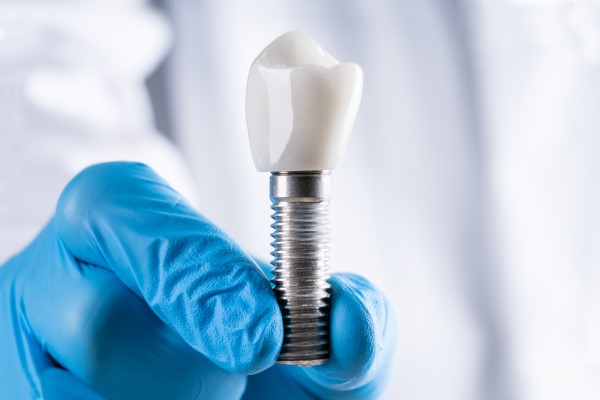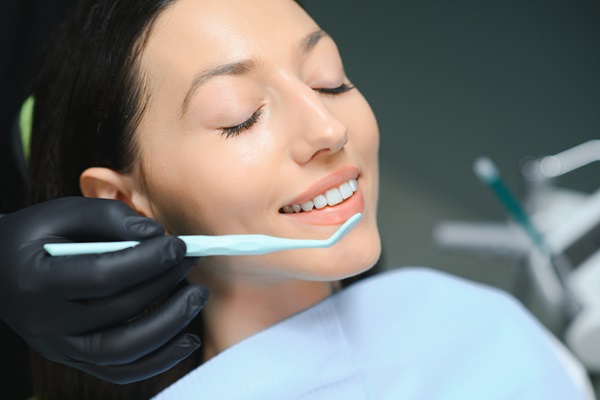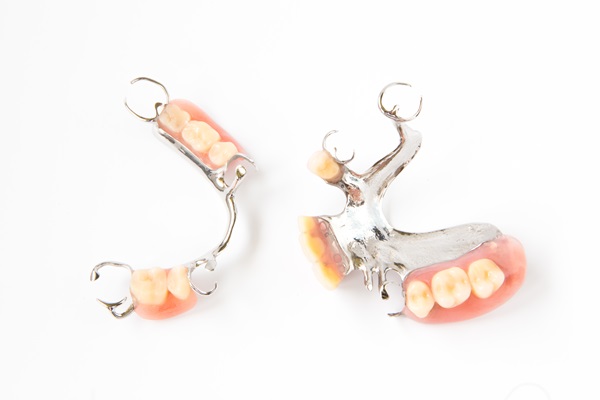Oral Hygiene Routines for Dental Implants

A consistent oral hygiene routine is necessary for anyone who has dental implants. While tooth decay cannot affect implants themselves, the area still requires routine cleaning to prevent gum disease and even infection. Failure to do so can also cause staining of the prosthetic tooth and an unsightly appearance. If the tissues surrounding the implant are not kept healthy, implant failure down the road could lead to implant failure. Fortunately, implants can remain healthy and last a lifetime with proper care.
What are dental implants?
A dental implant is a titanium post that a dentist places in the jawbone following the extraction of a natural tooth. Over time, the post fuses to the bone, creating a stable and permanent solution to tooth loss. The implant replaces the tooth's root and attaches to an abutment that extends through the gum to support a crown. The prosthetic tooth covers the exposed socket, preventing bacteria from accumulating and causing gum disease. In addition, implants restore the ability to chew, which provides stimulation to prevent jawbone loss.
What oral hygiene routines do dentists recommend for implants?
Teeth sitting on implants are not susceptible to cavity-causing decay, unlike natural teeth. Still, dentists advise patients about the importance of practicing good oral hygiene and recommend these tips to keep implants healthy and avoid damaging them.
Brush and floss daily
Although metal implants and crowns can resist bacterial decay, the gums surrounding them can develop gingivitis and periodontal disease without regular brushing and flossing. In addition, bacterial infections can quickly spread to the underlying bone that supports the implant, causing the bone to wear away, thereby hindering the implant's stability. Therefore, dentists advise patients to brush twice and floss once daily to help dental implants remain secure. Using a mouthwash can also help keep bacteria under control. However, it would be a good idea to wait until the tissues are fully healed after the implant procedure before adding this step back into your daily oral hygiene routine.
Use gentle dental tools
Patients with implants and crowns should use a toothbrush with soft nylon bristles to avoid scratches that create openings through which bacteria can enter. Also, using flexible instruments to access hard-to-reach spaces around an implant helps remove bacteria-carrying plaque that can endanger an implant. If you find flossing or cleaning the area difficult, be sure to talk with a dentist for techniques and tools that can safely and effectively get the job done.
Avoid sticky and hard foods
Although implants make chewing more effective, patients must know that certain foods can cause damage. For example, anyone with dental implants should avoid chewing excessively sticky foods and candy, such as caramel, taffy, and licorice, which can dislodge the post from the jawbone. In addition, patients should avoid using implant teeth to bite and chew hard foods like nuts, apples, and other dense foods, causing excessive pressure on implants. Chewing on ice or foreign objects can also be damaging while introducing excess bacteria into the mouth, so this practice should be avoided.
Wear a nightguard
Bruxism or teeth grinding can occur while sleeping. Unfortunately, most people are unaware of this habit which can wear down teeth and pose a greater risk of damage to implants. A nightguard can provide a cushion that absorbs the excessive grinding pressure to prevent dislodging implants from the bone. While you can purchase a night guard on your own, ordering a customized one from your dentist can improve comfort and fit.
Schedule professional dental cleanings
Professional dental cleanings are essential for maintaining a healthy mouth and critical for the longevity of dental implants. For example, a dental hygienist can remove plaque and tartar around the implant and surrounding teeth using special tools to prevent inflammation of the gum tissue and bone loss. Dental hygienists can also recommend brushes and other tools to access tight spaces around an implant that trap bacteria. At these appointments, your dentist can also monitor the progress of implants, checking that everything has healed properly and remained in place.
Conclusion
Dental implants can improve the quality of life for individuals missing natural teeth; however, many people mistakenly believe that implants do not warrant the same level of maintenance as natural teeth. Nothing could be further from the truth. Daily brushing and flossing, as well as other types of supplemental care, can help keep a dental implant and the surrounding teeth healthy and strong. Routine checkups and cleanings are also essential. A dentist can offer helpful tips to ensure patients enjoy the benefits of implants long-term.
Check out what others are saying about our dental services on Yelp: Dental Implants in San Dimas, CA.
Request an appointment here: https://sandimassedation.com or call San Dimas Family and Sedation Dentistry at (909) 305-2300 for an appointment in our San Dimas office.
Recent Posts
The introduction of dental implants has provided a solution to tooth replacement that goes beyond mere function to address the core of personal well-being. Loss of teeth has an impact on a lot more than just dental health — it impacts chewing, talking ability, and confidence. This is where dental implants come into play as…
If you have ever critically damaged or lost a tooth and had it repaired, you probably had a dental implant set. A dental implant is a metal fixture installed by a dentist that fuses to the jawbone via a process called osseointegration. This allows for artificial teeth to be securely placed on top of it.…
Deciding to get dental implants can be nerve-racking and exciting at the same time. Knowing as much as you can about the procedure can help clear up any apprehension. These restorations are durable and lasting. Understanding what to do while talking and chewing will be helpful. If you want to learn some pointers about speaking…
Getting dental implants is an important choice in your goals for good oral health. This treatment is also a great way to restore your smile and feel good about your appearance again. If you compare implants to other tooth-replacement options, you will see the differences and benefits that implants offer. The process of getting implants…


